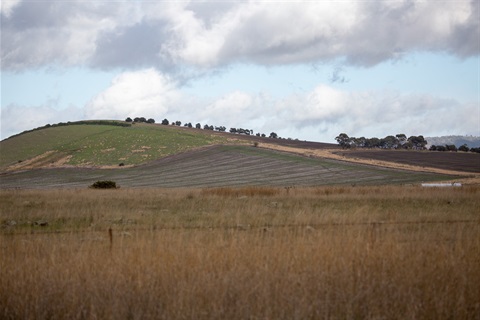Community urged to prepare for summer heatwaves
Published on 27 October 2025

As summer approaches, health authorities are warning Australians to take the dangers of extreme heat seriously. Heatwaves are a silent and deadly killer, and claim more lives in Australia than all other natural disasters combined.
In the last ten years, 50 per cent of all heatwave-related deaths in Australia have occurred in Victoria, making it critical that Victorians understand the risks and take steps to protect themselves and others, particularly during prolonged periods of hot weather and heatwaves.
Mayor, Cr Don Henderson, said that heat doesn’t always feel like an emergency, but it should be treated as one.
“Heat can affect anyone, but the elderly, young children, people with pre-existing health conditions, and those living alone are especially vulnerable. For that reason, it is important to know the risks, signs of heat illness and what to do,” said Cr Don Henderson.
Heat-related illness can escalate quickly and become life-threatening. It can cause dehydration, heat exhaustion, heatstroke, and worsen existing medical conditions. With more frequent and intense heatwaves predicted, it’s more important than ever to be heat-prepared. When temperatures soar, especially over consecutive days, the risks increase significantly.
“To help people stay safe during extreme heat, Council has partnered with the Grampians Public Health Unit, Central Highlands Rural Health and 14 other agencies to pilot the Heatwave H.E.L.P. project in our region,” he said.
“This project focuses on bringing communities together so that they can help support each other during extreme heat, particularly heatwaves. It also serves as a timely reminder about the risk of leaving children and pets in hot cars,” said Cr Don Henderson.
H = home and environment. You might need to make changes during extreme heat to stay cool, and if you can’t make changes, your vulnerability to heat is increased.
E = environment, including people living alone, working outdoors, or where people are isolated because they don’t have access to internet and alerts.
A = age and underlying conditions. If your body must work a little harder to function, then during extreme heat, your body will have to work harder again.
T = taking certain medications. We know that many common medications can prevent your body from cooling down naturally, so ask your doctor or pharmacist if that applies to you.
There are ways to stay safe during heatwaves:
- Stay hydrated and keep cool: Drink plenty of water, even if you don’t feel thirsty, but check with your doctor if they normally limit your water intake. Use fans, air conditioning to stay cool, or visit airconditioned public places like libraries or shopping centres.
- Avoid the heat: Stay indoors during the hottest parts of the day, usually between 11 am and 4 pm. Use blinds, fans and air conditioning to keep your house (or at least one room in your house) cool.
- Family and friends: Keep in touch with others. Especially older family members, neighbours, or anyone who may be isolated.
- Emergency apps: Extreme heat is often predicted in advance so you can make preparations, and often means other risks, like fire, are more likely. Download these apps now or source an alternative.